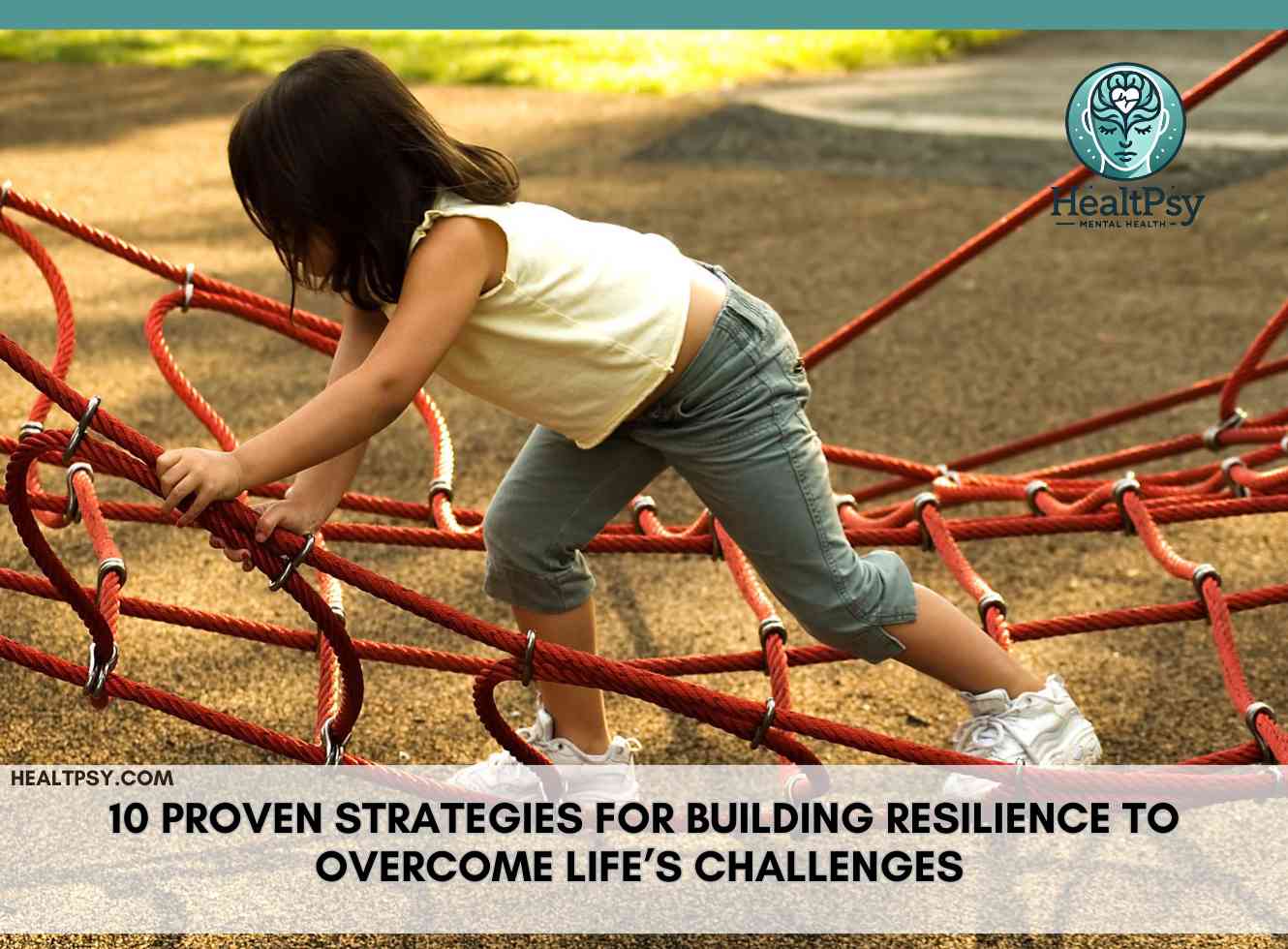10 Proven Strategies for Building Resilience to Overcome Life’s Challenges
Building resilience is essential in today’s fast-paced world, where challenges and uncertainties are inevitable. In an environment filled with constant pressures, from economic instability to personal hardships, the ability to adapt becomes crucial for maintaining mental well-being. Resilience provides individuals with the strength to face setbacks and navigate through difficult times with confidence and determination.
Resilience allows individuals to adapt, recover, and thrive despite adversity. It is not merely about enduring hardships but also about learning and growing from them. Research indicates that people with high resilience levels exhibit lower stress, better emotional regulation, and stronger interpersonal relationships, all of which contribute to overall psychological health.
Developing resilience involves cultivating positive thinking, managing emotions effectively, and building supportive social networks. By embracing these practices, individuals can enhance their capacity to cope with life’s challenges. This comprehensive guide explores the importance of resilience, its psychological underpinnings, and ten proven strategies to build and maintain resilience for better mental health and well-being.
What is Resilience and Why Does It Matter?
Resilience is the psychological capacity to cope with stress, adversity, and trauma. According to the American Psychological Association (APA), resilience involves emotional strength, mental flexibility, and a proactive approach to challenges. Research highlights that resilient individuals experience lower levels of anxiety, depression, and burnout.
📌 For more on mental strength, visit Managing Psychological Stress.
🔗 External Source: APA – The Road to Resilience
The Science Behind Building Resilience
Resilience is not a fixed trait but a dynamic process influenced by genetics, environment, and life experiences. Studies from Harvard Medical School reveal that resilience is linked to neuroplasticity—the brain’s ability to adapt and form new connections.
📌 Explore related content in Psychological Support and Therapy.
🔗 External Source: Harvard Health – Resilience and Mental Health
10 Proven Strategies for Building Resilience
1. Cultivate a Positive Mindset
Positive thinking helps reframe challenges as opportunities for growth. Daily affirmations, gratitude journals, and focusing on strengths enhance mental resilience.
📌 Learn about self-growth in Tips for Developing Self-Confidence.
🔗 External Source: Mayo Clinic – Positive Thinking
2. Build Strong Relationships
Supportive relationships provide emotional safety and encouragement during difficult times. Invest in meaningful connections with family, friends, and support groups.
3. Develop Problem-Solving Skills
Effective problem-solving reduces feelings of helplessness. Break challenges into manageable steps and brainstorm solutions.
4. Practice Self-Care
Prioritize physical health through regular exercise, balanced nutrition, and adequate sleep. Mental self-care includes mindfulness, relaxation techniques, and hobbies.
5. Set Realistic Goals
Achievable goals provide direction and motivation. Celebrate small victories to build confidence and momentum.
6. Embrace Change
Flexibility and adaptability are core components of resilience. Accept that change is a part of life and focus on what can be controlled.
7. Manage Stress Effectively
Stress management techniques such as deep breathing, meditation, and time management reduce mental strain and promote resilience.
8. Foster Optimism
Optimism fuels hope and perseverance. Challenge negative thoughts and visualize positive outcomes.
9. Seek Help When Needed
Professional support from therapists or counselors provides guidance and coping strategies.
10. Align Actions with Values
Living according to personal values reduces internal conflict and enhances psychological well-being.
Benefits of Building Resilience
Building resilience improves emotional regulation, enhances coping skills, and promotes overall mental health. Resilient individuals are better equipped to handle stress, maintain healthy relationships, and achieve personal and professional goals.
📌 For more on emotional well-being, visit Mental Health and Digital Well-Being.
🔗 External Source: World Health Organization – Mental Health
Conclusion
Building resilience is a lifelong journey that requires commitment and practice. By adopting these strategies, individuals can navigate life’s challenges with confidence and strength, ensuring mental well-being and personal growth.
📌 For additional support, explore Personal Growth and Self-Development.
Building resilience, Building resilience, Building resilience, Building resilience,
you might also like





